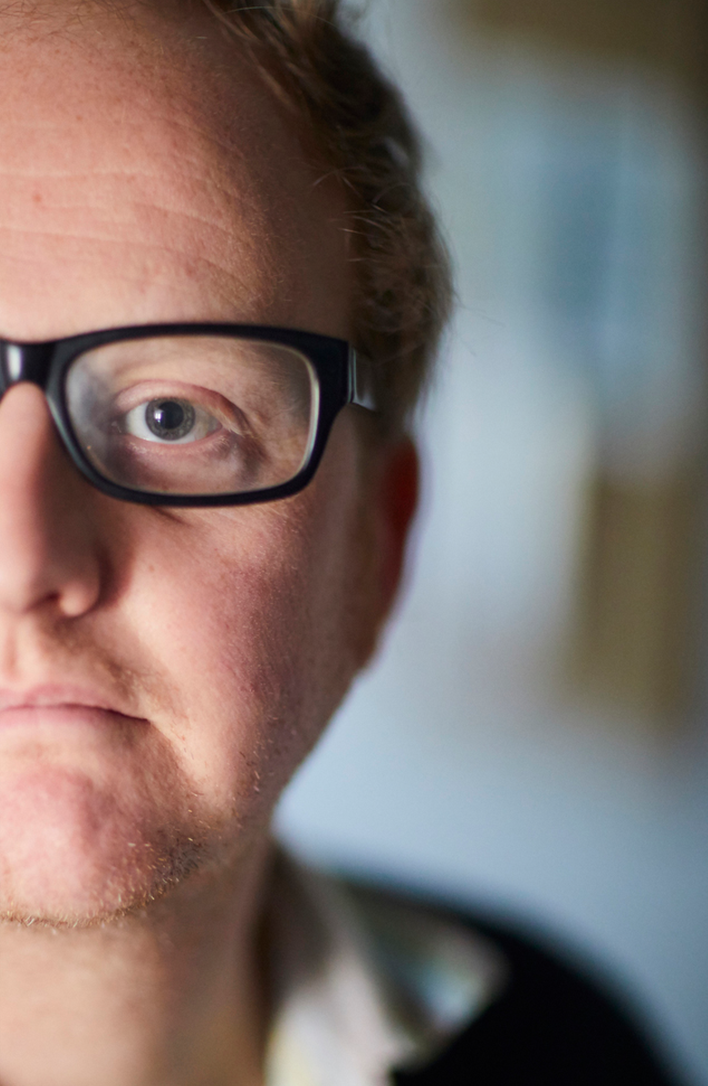SIX QUESTIONS…
Steven Hanson
What book are you reading right now?
I’m re-reading Sam Byers’ Perfidious Albion from 2018, because I’m interested in how fast things are shifting in Britain, over short spaces of time. Perfidious Albion is really a portrait of the rise of populist Britain, and a satire of its culture. The details have definitely moved on a bit, but Byers’ broader insights adhere. It’s a contemporary Fielding, or Smollett.
What’s the last great book you read?
Probably Wretch by Ansgar Allen. It’s a sort of meta-textual description of contemporary life, with echoes of Kafka, Arkady and Boris Strugatsky and others. It is horrible, but not actually horrible enough. If it were more horrible it would be comforting, because we would be out of our own reality and into a fantasy space. There, we would be safely into the zone marked ‘leisure’, the enjoyment of spare time. Instead, this book mercilessly illuminates the way we spend our time, and therefore the state of all our times, by only nudging it a short way into dystopian fiction. There are much deeper echoes, I think, of themes in modernist giants such as Conrad, which someone who isn’t me might detect and transcribe.
What’s a book you love that no one else has heard of?
An obscure book I think is powerful is Imagining the Auroch by Robert Galeta and Simon Ford. It’s about a sort of cow that existed hundreds of years ago, but became extinct. It’s an artists’ book. It’s visual and abstract, and critical, all at the same time. It’s the kind of book that silences all the motormouthed nonsense of the mediasphere with a single page. The last Aurochs died in Poland in the 17th century. Modern cattle are Auroch relatives, but look what happened to them.
What book most changed the way you see the world?
Dialectic of Enlightenment, Adorno & Horkheimer. It didn’t change how I saw, only deepened that. Instrumental rationality is still the modus operandi of the west, the source of its prosperity, as well as the thing that is likely to kill us all, sooner or later. And now, probably sooner. We are still in Bad Enlightenment. Adorno & Horkheimer illuminated the roots of that malaise in this book, circuitously, and more directly. They show scientific Marxism to be one with western state capitalism. They leave little room for any hopeful notions that we have passed out of a perverted enlightenment humanism – which was always one with brutal colonial power – and into a new age. I started life in a post-industrial valley with a few remaining factories, and I worked in some of them. They were madhouses. This book, then, reflected everything I understood about the contemporary hell I inhabited. ‘Instrumental rationality’ has a lot of instrument, but not much rationality, even in the shallow way its proselytisers understand that. Nothing has happened in the intervening years to invalidate anything in this book. They provided the philosophy for my reality, a mirror that only gets clearer. This is the real bible of the grey in grey.
If you received a £100 book token you had to spend today, what would you buy?
I might give it to someone, the token. Or buy a load of graphic novels, perhaps 2000AD reissues. I grew up with that stuff, but I would never ordinarily allow myself to indulge, because I never have any money.
What would be your Desert Island book?
Minima Moralia, Theodor Adorno. Because its aphorisms contains everything you would need in dehydrated form. I always said it was the book I’d take out of a burning building. The house I rented burned down in the middle of the night – because a cowboy fusebox exploded at 1am – so I thought I’d better take the book with me after that. It still has ash finger smudges on the cover.
